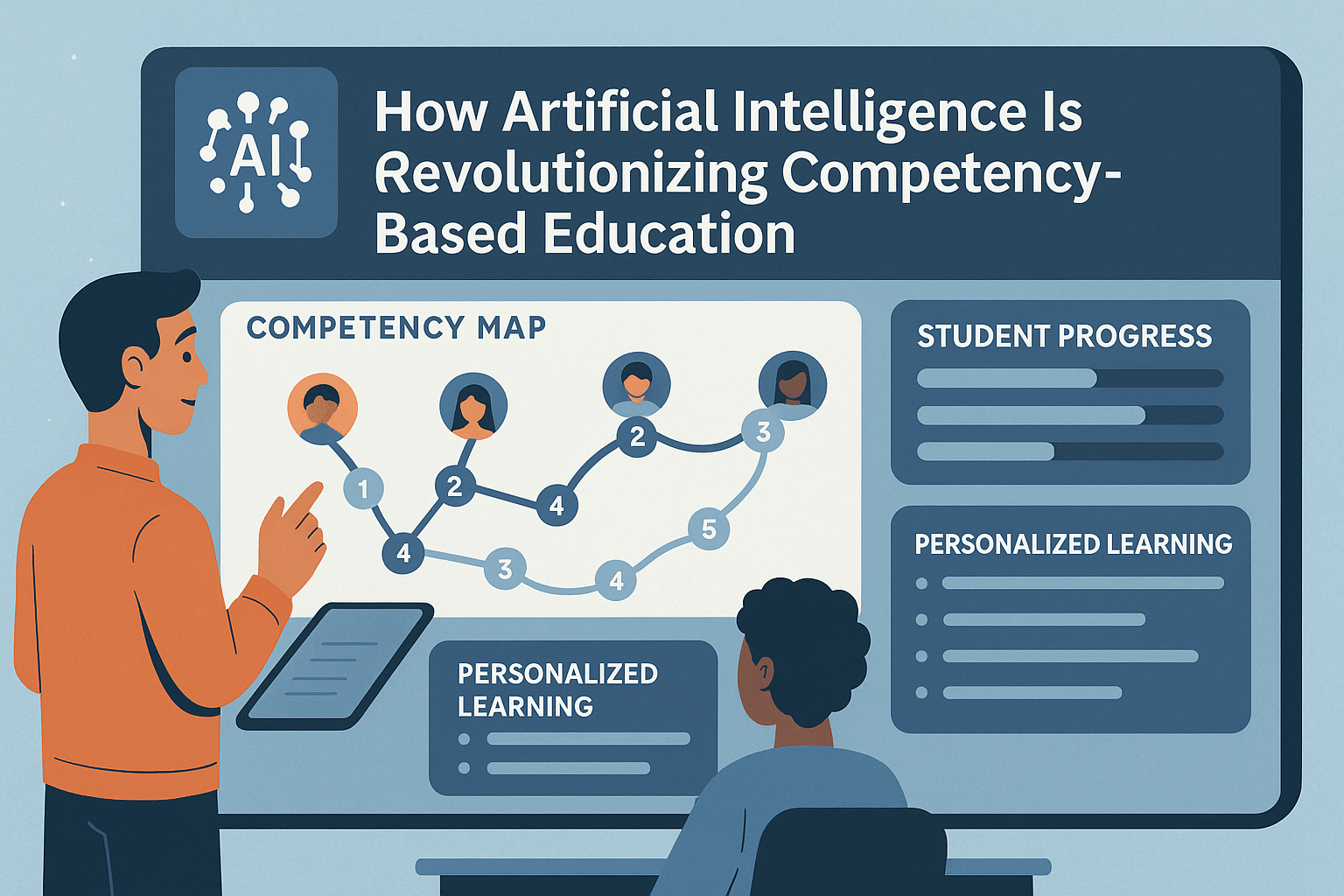
Competency-Based Education (CBE) emphasizes what learners can do not just what they know. As education systems shift toward skills mastery and personalized learning outcomes, artificial intelligence (AI) is becoming a crucial driver of this transformation.
In traditional models, learners progress based on time. In CBE, they progress based on demonstrated competency. AI enhances this approach by automating feedback, personalizing content, and tracking mastery at scale.
Let’s explore how artificial intelligence in competency-based education is helping institutions deliver on the promise of learner-centered design.
What Is Competency-Based Education?
CBE focuses on:
- Clearly defined learning outcomes
- Flexible learning pathways
- Personalized pace of progression
- Evidence-based assessment of mastery
CBE is especially relevant in technical, professional, and workforce development programs where demonstrating a skill or behavior is more valuable than memorizing content.
How AI Enhances CBE Systems
1. Automated Competency Tracking
AI can continuously track student performance across activities and assessments. Using learning analytics, it identifies which competencies have been mastered and which need reinforcement.
For example, if a learner shows repeated success in teamwork-based simulations, AI can mark that competency as “proficient” without waiting for a summative exam.
2. Personalized Learning Pathways
Machine learning algorithms adjust the content and order of instruction based on each learner’s past interactions and preferences.
Students no longer follow the same fixed curriculum. Instead, AI dynamically builds adaptive pathways that help learners reach mastery faster and more effectively.
3. Mastery-Based Feedback
Using natural language processing (NLP), AI tools can deliver rubric-aligned, constructive feedback instantly after a task is submitted allowing students to revise, resubmit, and demonstrate growth.
4. Competency Mapping and Curriculum Design
AI can analyze large datasets to suggest which courses or modules align best with specific career competenciesallowing educators to optimize curricula.
Institutions using AI-driven curriculum planners are able to align learning with labor market demands more effectively.
Benefits of AI in Competency-Based Education
- Scalability: AI allows CBE models to operate across large, diverse student cohorts without losing personalization.
- Equity: Learners get support based on actual performance, not assumptions.
- Efficiency: Educators spend less time grading and more time coaching.
- Transparency: Progress maps powered by AI give learners and institutions real-time visibility.
Real-World Implementation
To explore how educators and organizations can integrate AI into CBE, visit The Case HQ Courses Page. While the platform does not currently list a specific “CBE with AI” course, relevant training themes include:
- AI-powered assessment tools
- Ethical integration of AI in learning environments
- Educator training for digital and adaptive learning
Each course empowers educators to rethink how teaching, assessment, and progression can be transformed through technology.
Challenges to Consider
While the benefits are clear, responsible implementation is vital:
- Bias Monitoring: AI systems must be regularly audited to avoid reinforcing inequity.
- Transparency: Students should understand how AI tracks and scores their performance.
- Data Security: Learner records and competencies must be securely stored and ethically used.
- Human Oversight: Educators should guide the AI not be replaced by it.
Artificial intelligence in competency-based education offers a scalable, personalized, and transparent approach to modern learning. By leveraging AI’s strengths in tracking, adapting, and analyzing, institutions can better serve diverse learners and ensure mastery is truly achieved.
To begin building your AI-informed teaching practice, explore training and certification opportunities through The Case HQ, where innovation meets integrity in professional learning.
https://thecasehq.com/how-artificial-intelligence-is-revolutionizing-competency-based-education/?fsp_sid=2373
Comments
Post a Comment